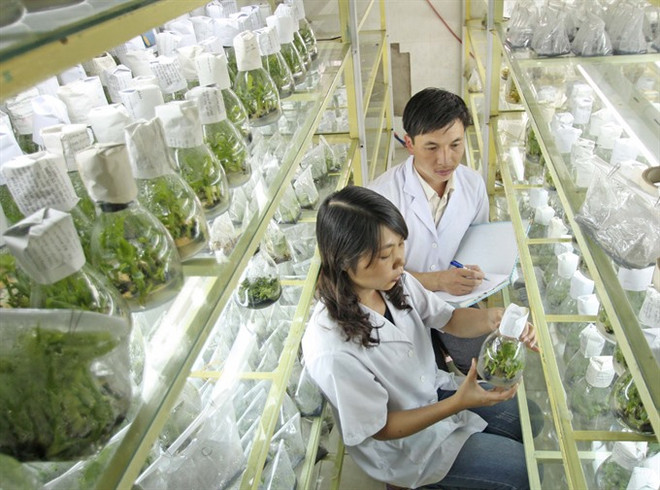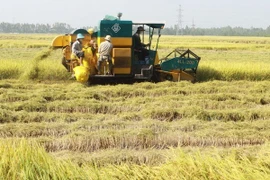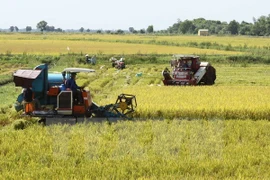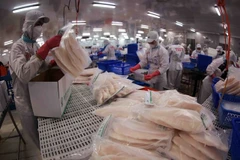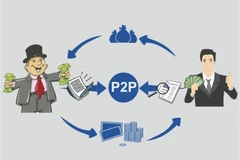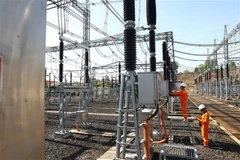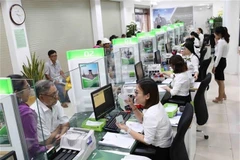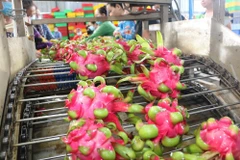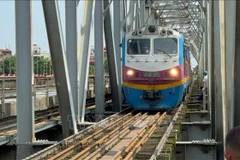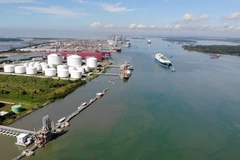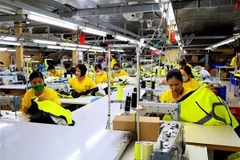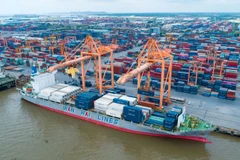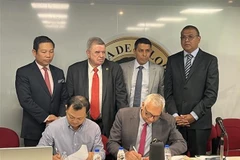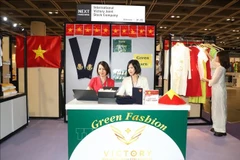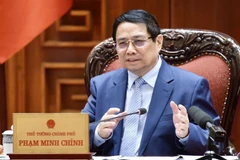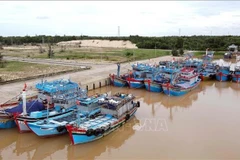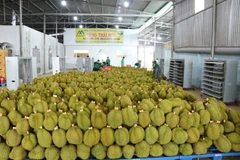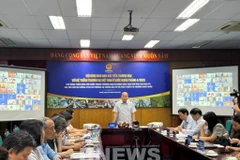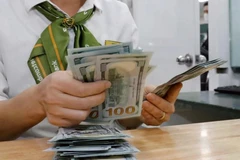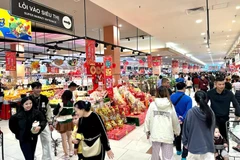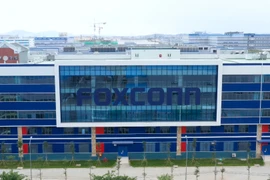These are tasks for the Government and enterprises respectively, they added.
The seminar was organised by the Vietnam Farmers’ Association, the State Bankof Vietnam and the Ministry of Agriculture and Rural Development.
According to the State Bank of Vietnam (SBV), total outstanding loans forhi-tech agriculture have reached nearly 32.34 trillion VND. The loans have beengiven to 4,125 customers, 3,957 individuals and 168 enterprises.
Nearly 27.74 trillion VND (about 86 percent) of these loans were given tohigh-tech agricultural projects and the remaining 4.602 trillion VND to cleanagriculture projects. There was no bad debt, the central bank said.
A number of large-scale high-tech projects have begun operations, involving thebreeding of cows, horticulture and fruit and vegetable exports.
The Bank for Agriculture and Rural Development has committed to a 50 trillion VND soft loan package for hi-tech and clean agriculture programmesand projects. Loans under this package will be given at interest rates 0.5-1.5percent lower than normal lending rates.
Despite this, the reality was that encouraging high-tech and clean agriculturewas fraught with risk, especially without stable consumption markets, theexperts said.
They added that there were not enough tools in the country to distinguish andprotect high-tech and clean agriculture projects from normal ones.
There was also a lack of guidance on the granting of ownership certificates forassets on agricultural land, including greenhouses and other facilities, theseminar heard.
Nguyen Duc Huong, Chairman of the Lien Viet Post Commercial Joint StockBank (LienVietPostBank), said that hi-tech agriculture was often associatedwith high production costs and there was not enough consumer confidence inclean farming products.
He also noted that investment in agriculture carried greater risks because itdepended on many uncertain factors like the weather.
The State should have policy incentives for businesses to consume farmers’products, Huong said.
He also said cooperation among farmers, and between farmers and enterpriseswould help them expand production, improve processing and consumption, therebyfostering stable production, increase in product quality and the building ofrecognisable brands.
Le Thanh, Director of the Institute of Organic Agriculture Economics andGeneral Director of the Ket Noi Xanh Joint Stock Company, said that hi-techagriculture is a mode of production, not an economic model, so it must beclosely linked to new value chains.
For instance, "if an enterprise has an investment of 3-4 trillion VND forhigh-tech agriculture projects without a market, this will turn into a debt forbanks, businesses and investors," he said.
"The value chain will only succeed if farmers can frequently accesstransparent, accurate, updated market information," he said.
Thanh also said the State should pay attention to building mechanisms andcreating conditions for investors for developing supply chains.
This would create the benefits of tax collection and job creation, he added.
Pham Thi Huan, General Director of Ba Huan Co, Ltd, said many businesses wantedto produce clean farm products but they couldn’t afford the large capital thatwas required.
The State should, therefore, issue support policies for clean agricultureproduction and improve the quality of agricultural development.
To support the development of adequate distribution systems, the agricultureministry cooperated with other agencies and sectors to develop policies oncredit, commercial infrastructure, land, tax, production, processing and post-harvestpreservation, said Hoang Anh Tuan, deputy director of the Ministry of Industryand Trade’s Domestic Market Department.
Economist Vo Tri Thanh said the market would eventually promote high-techagricultural production, but the initial development phases would carry risksand instability.
To develop hi-tech agriculture, the state should also perfect the insuranceschemes for the sector. This would be a key factor in having businesses andfarmers share risks inherent in agricultural production, he said.-VNA
